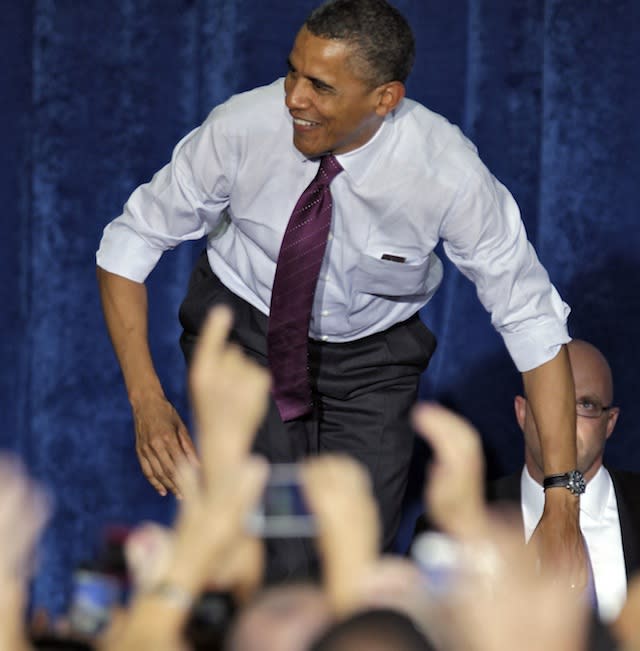 The Ticket
The TicketHow Republicans plan to win over the youth vote
Four years after Barack Obama won the support of 66 percent of voters aged 18 to 29, Republicans are working on a fresh approach to bring younger voters and candidates into the fold, using a coalition of traditional campaign organizations, super PACs, nonprofit advocacy groups and policy-based think tanks.
And even Republicans organizing these efforts admit it's going to take some work.
Two groups, the Young Guns Action Fund and Maverick PAC—the latter was co-founded by George P. Bush, nephew of former President George W. Bush and son of former Florida Gov. Jeb Bush—will focus on finding young Republican political talent and supporting them with money. The two organizations announced a strategic partnership Tuesday that organizers hope will increase engagement with voters that were lost to Obama in 2008. One short-term goal, of course, is to narrow the enthusiasm gap between young Republicans and Democrats, but ultimately, they're looking far beyond the next election.
"The relationship is about developing something for the long-term that looks past just this November," YG Action Fund President John Murray told reporters during a breakfast meeting in Washington, D.C., on Tuesday. "By the midterms in 2014, perhaps we've made a little more progress; by the next presidential we've made some more progress, and [we've gained] ... the capacity to build that over time because it's going to take time."
Here's how the partnership will work: The YG Action fund, a super PAC, will scour the country looking for new young Republican House and Senate candidates. (The group is similar to, but independent from, the National Republican Congressional Committee's "Young Guns" program.) The Action fund will support these new GOP candidates and independently bolster their campaigns. Meanwhile, MavPAC will build its own base of young, new donors and fundraising bundlers, whom they plan to connect with the new recruits. The two groups will share data based on the information they gather from new supporters. They plan to spend $5 million this election cycle on the joint project.
YG Action Fund will recruit the pilots and cover the air war, while MavPAC rallies the boots on the ground.
Organizers say they hope to make some headway with younger voters this cycle, but they aren't promising a Republican revolution by November.
"We want to manage expectations," said MavPac co-founder Bush. "We don't want to say it's going to swing 180 degrees to the other side. I think it's worth the effort. I think to leave a complete demographic group like this uncontested is a mistake for the Republican Party."
To reach the goal, MavPAC and YG Action Fund leaders both pointed to Obama's success four years ago, and how he was able to "capture the imagination" of young people in his speeches. Now, they say, many of those same voters have graduated from college, are struggling to find work and are disappointed. Republicans plan to capitalize off that frustration.
"I am not here to say that there's some magic wand we're going to wave and all these voters are going to suddenly vote Republican," Murray said. "I think what we recognize is that there's a unique moment in time where there's a real choice being presented in this country, and many of these voters, once you articulate that voice, tend to say, 'You know, I want this freedom and opportunity, and I'm concerned about it.'"
MavPAC and YG Action aren't the only groups focused on shoring up the Republican base of young voters this cycle. American Crossroads, a group co-founded by Republican operatives Karl Rove and Ed Gillespie, announced the formation of Crossroads Generation earlier this year. In 2010, conservative operatives launched Generation Opportunity, which conducts nationwide voter registration drives targeting the younger set. Free from the restrictions of campaign finance laws, those independent groups will work to amplify the efforts of traditional party organizations.
Said YG Action Fund spokesman Brad Dayspring: "There's an opportunity to capture the imagination of those voters."



